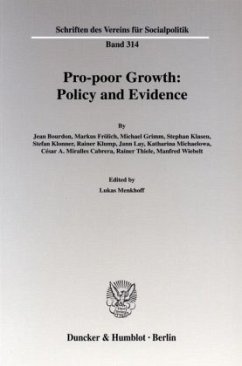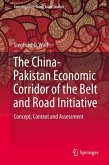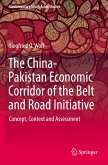The embarrassing living conditions of more than one billion poor people in developing countries in combination with the increasing gap of living standards between the poor and the rich, has provided a strong motivation for development policy to change this situation. From its beginning, policy has aimed for stimulating economic growth in order to improve living conditions for everyone. The endurance of poverty, however, has motivated to extend the traditional »growth is good for the poor« by a more targeted policy that combines growth with a particular emphasis on improving the situation of the poor. This is exactly the objective of »pro-poor growth«, a term that became popular during the late 1990s and which seemed to dominate the stage with the propagation of the Millennium Development Goals, including its goal to halve poverty by 2015.
This volume contains six papers that address various core issues of pro-poor growth policies. These papers were presented at the annual meeting of the Research Committee Development Economics (Ausschuss Entwicklungsländer des Vereins für Socialpolitik) in 2005. Papers were lively discussed at the meeting and later on improved by comments from anonymous referees.
All authors have done extensive research in the field of pro-poor growth, including field studies. Accordingly, their contributions - reflecting this knowledge and proficiency - pick up recent developments in the field. The discussion of most appropriate pro-poor growth policies is an ongoing process which has been documented by a growing literature. The value added of the present volume is obviously not to be more comprehensive than others but rather to continue the line of work by bringing some recent research findings - with a focus on policy relevance and empirical substantiation - to a broader audience.
This volume contains six papers that address various core issues of pro-poor growth policies. These papers were presented at the annual meeting of the Research Committee Development Economics (Ausschuss Entwicklungsländer des Vereins für Socialpolitik) in 2005. Papers were lively discussed at the meeting and later on improved by comments from anonymous referees.
All authors have done extensive research in the field of pro-poor growth, including field studies. Accordingly, their contributions - reflecting this knowledge and proficiency - pick up recent developments in the field. The discussion of most appropriate pro-poor growth policies is an ongoing process which has been documented by a growing literature. The value added of the present volume is obviously not to be more comprehensive than others but rather to continue the line of work by bringing some recent research findings - with a focus on policy relevance and empirical substantiation - to a broader audience.








